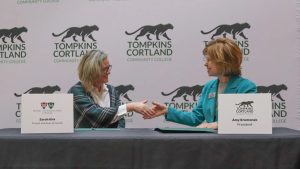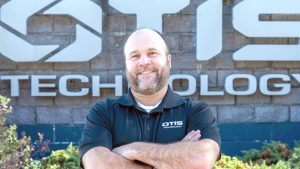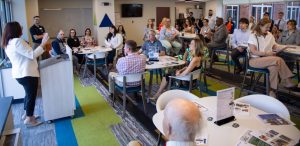OSWEGO, N.Y. — SUNY Oswego physics professor Mohammad Islam will use grant funding of $15,000 to continue his research on lithium-ion batteries.
The Syracuse Center of Excellence (CoE) in Environmental Energy Systems awarded the funding for Islam’s work. The effort seeks to improve the range of lithium-ion batteries, so electric cars can “better compete with gas-powered vehicles,” SUNY Oswego said in its news release.
SyracuseCoE, located at 727 E. Washington St. in Syracuse, focuses on research pertaining to water, environment, and energy.
(Sponsored)

Can a Generative AI Use Policy for the Workplace Help Protect Sensitive Data?
Artificial intelligence is a buzzword for many industries. It has good and bad effects on the future of creating content, finding information, and other uses. So, what does this mean

How Do Value Conclusions and Value Calculations Differ?
The value of a business is relevant in a wide variety of legal contexts, including divorces, shareholder disputes, mergers, bankruptcy and tax planning. Nevertheless, not every so-called “valuation” service is
SyracuseCoE also awarded Islam a grant in 2020 to develop new batteries for electric vehicles that ran on sodium, or salt, which can be extracted from the ocean. In the U.S., the material is more accessible than lithium, SUNY Oswego said. However, Islam has now shifted his focus to improving the existing lithium-ion technology.
“The previous 2021-2022 research on sodium-ion batteries was a new technology, and hopefully that can develop further later on into a market technology, but this year’s 2023 Syracuse CoE grant that I received is basically falling back onto lithium-ion batteries because of the urgency,” Islam said in the release.
Lithium-ion batteries are found in many everyday products, such as electric cars, cell phones, and laptops. However, their battery life makes long-term use, like on a road trip, challenging, the school said.
“If you’ve ever driven an electric car, they have a short range,” Islam said. “Most electric cars are hybrid cars, so they run on gas and electric, and the car decides when to go from electric to gas. The ranges are somewhere between 200 to 250 miles with a fully charged battery. That’s less than from [Oswego] to New York City.”
Islam worked with one SUNY Oswego physics student, Joel Turallo, on this research project throughout the summer, and that will continue through the fall 2023 and spring 2024 semesters.
“I do feel good about research, and research is something you do because you enjoy it, but at the same time I feel a responsibility to our students, especially physics students,” Islam said.




